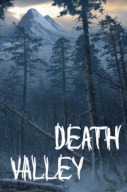In Which I Read Twilight: Epilogue -- An Occasion · 3:42pm Mar 1st, 2018
The epilogue begins some time after the previous chapter; Bella’s up and about, but her leg hasn’t quite fully healed yet. She’s in a nice dress (dressed and made up by Alice), and Edward’s in a tuxedo, and he’s driving her somewhere, and she doesn’t know where. When she realizes he’s taking her to the prom, she has a hissy fit and actually starts crying before Edward tells her to humor him. Bella still sulks, though:
He got out and walked around the car to open my door. He held out his hand.
I sat stubbornly in my seat, arms folded, feeling a secret twinge of smugness. The lot was crowded with people in formal dress: witnesses. He couldn’t remove me forcibly from the car as he might have if we’d been alone.
Seriously, she was this close to actually admitting he’s physically abusive and only witnesses are stopping him. Gah.
They go to the gym and dance with the other students. After a little bit, Edward notices Jacob and literally snarls at him — the book uses that exact word — because he wants to talk to Bella. Edward’s possessive. What else is new? Edward reluctantly steps aside to let Bella and Jacob talk for a bit. Jacob’s father Billy paid him to come to the prom and tell Bella to break up with Edward; Billy thinks Edward had something to do with Bella’s injuries. He also wants Jacob to tell Bella that, “We’ll be watching.” Jacob tells Bella those things, and they awkwardly separate again.
When Edward and Bella get back together, Bella tells him not to be angry at Billy; “he just worries about me for Charlie’s sake.” Even though he worried about her for Charlie’s sake back in chapter 17 and she acted incredibly offended by it. In response, Edward’s possessiveness and shallowness reach new levels:
“I’m not mad at Billy,” he corrected in a clipped voice. “But his son is irritating me.”
I pulled back to look at him. His face was very serious.
“Why?”
“First of all, he made me break my promise.”
I stared at him in confusion.
He half-smiled. “I promised I wouldn’t let go of you tonight,” he explained.
“Oh. Well, I forgive you.”
“Thanks. But there’s something else.” Edward frowned.
I waited patiently.
“He called you pretty,” he finally continued, his frown deepening. “That’s practically an insult, the way you look right now. You’re much more than beautiful.”
Ugh. I’m out of things to say about their fixation on beauty for now.
They head outside for some peace and quiet. Edward asks Bella a question: if she didn’t know she was going to prom when Alice put her into a dress and makeup, where did she think she was going? Bella confesses that she thought Edward was going to turn her into a vampire, since she didn’t know how it all worked. They get in another little argument about her becoming a vampire. Bella says it’s not about becoming a monster, it’s about becoming immortal so she can be with Edward forever. For the moment, they agree to disagree; Edward will stay with her, she’ll love him more than anything else in the world, and that’ll be enough for now.
Fin. Finally.
So that was Twilight. It sucks. Shocking, right? I went into this hoping to see what it did wrong, but almost everything wrong with it was basic stuff that shouldn’t be wrong. The characters were underdeveloped — just for starters, Bella and Edward were a romantic couple first and people second. Or third. Or later. Most of their dialogue is mushy romantic stuff with no buildup. There’s padding up the wazoo, with long, pointless descriptions and reiterating ideas over and over. The plot with James comes out of nowhere and doesn’t fit in with the rest of the book; James himself is a boring villain with no presence. Outside of him, there’s virtually no plot, and no good, solid character interactions (or anything, really) to make up for it. Everything’s so flimsy that barely anything actually happens.
But I did learn some things, so:
- Word choice, even among synonyms, matters. In the first chapter, Bella describes herself and says she’s not beautiful, but also says she’s “ivory-skinned” instead of “pallid” or “pasty”. “Ivory-skinned” is almost exclusively used for descriptions of beauty, even though it technically means the same thing as the other two words: pale. There’s a subtle difference between a pony with a “crimson” coat and one with a “sanguine” coat.
- Have villains be villainous on-screen beyond gloating. This is actually something even fantastically-written books can remember. To give an example: in The Dresden Files, “Gentleman” Johnny Marcone is a mob boss, for which main character Harry Dresden hates him with a passion. But Marcone is a neighborhood-friendly gangster holding his bits of the city together outside the law and for all the evil we see him do, he’d be in the running for Time’s Person of the Year, so it’s hard to get the feeling that he’s evil. And the evil they do doesn’t need to be gratuitous puppy-kicking, either; it can just be something like mistreating a waiter at a restaurant. If we can’t see it — because we’re in a first-person narrative, maybe — have the main character see its effects and linger on their reaction. Luke stumbling on the corpses of his aunt and uncle in A New Hope comes to mind. The point is that we need things, visible things, that we can point to and say, “That’s why they’re the villain. That’s why we (love to) hate them.”
- Don’t include significantly more characters than you have to, or if you do, remember that they still exist. This one is kind of complicated. The book has all of Bella’s friends and all the Cullens and Hales, but a lot of them are just there, mentioned once or twice when necessary and never again. Do you remember Eric? Or Esme? Probably not. So originally I was just going to say the first half of this; combining characters when you can often leads to more dynamic, more proactive characters. But I’m also rereading the Harry Potter series right now, and that has a lot of equally “pointless” characters. Yet I remember those characters a lot more, if only because rather than simply being dropped, they’re constantly mentioned throughout the books as background characters. And think about Friendship is Magic itself; we all remember background ponies like Lyra, Octavia, and so on because they keep appearing in scenes. They still exist. A lot of characters in Twilight don’t reappear once they’re established.
- Other people exist beyond your main characters. So do other relationships. How well-developed are the friendships, rivalries, love triangles, etc., that your main characters aren’t involved in? They don’t need to be as deep as those of the main characters, but they still need to be given more than lip service. Things get really fun when those start clashing with the main characters. Say, A is the main character. B and C are in love. B likes A as a friend, but C hates A. A asks B to do something. B is happy to do it, but C tries to stop it because A wants it and C hates A. Simplistic, but you can see where I’m going with this. There’s a world beyond the characters, so have that world muscle in from time to time.
- If a character or group has a reputation, uphold it. Nothing irks a reader more than being told something and yet reading something different; say, a character supposedly being “absolutely lethal” and yet getting their ass kicked by two people tag-teaming them. If one scene has a character describing your protagonist with, “He wasn’t the boogeyman. He was the one you sent to kill the fucking boogeyman.”, then at some point, your protagonist should gun down a dozen assailants in about two minutes. (Of course, I’m assuming the reputation is supposed to be true; this doesn’t apply if the disconnect between what we’re told and what we see is the point.)
- Spend an appropriate amount of time on each idea. Part of the reason the book is so long is because Bella and Edward dwell on the same ideas without adding anything new. If you’ve said everything you can on an idea — which you probably shouldn’t, anyway — then move on. If the idea isn’t all that important, don’t spend much time on it to begin with. Leave out the parts the reader tends to skip. And, yes, this can qualify for “important” stuff like atmosphere and suspense, too, if they’re too drawn-out and underutilized. To quote Zero Punctuation: “You've built suspense, Alien: Isolation. It's a very nice suspense, you can stop building it now. No, I don't think it would look nicer with a conservatory! Put that trowel down before I smack you with it!”
Of course, this all just my take on things. Ignore it all you like.
There are some good ideas in the book. The basic “girl meets boy, boy turns out to be a vampire” concept isn’t bad. Some characters have foundations for interesting personalities that never get explored. But it’s all pushed aside for the romance. I think that’s the main problem with the book: Bella and Edward are the only people that matter. Everyone cares about them, they only think about each other(‘s looks), no one else has any relationships outside of the two of them. The world is limited to them, and they’re not the least bit interesting.
That’s that. On to New Moon.




Good luck.
Some very useful lessons to be had here. Looking forward to seeing what can be gleaned from the rest of the series.
Dies inwardly for you.
For god's sake, man, save yourself. D:
Character overabundance is something I'm guilty of in Desert Spice. I'm not comfortable deleting or combining them at this point (as that would require a lot of revision on past work on an Incomplete story, and I fear getting trapped in eternal revisions), so I guess I'll have to work to make these characters relevant rather than having them be one-offs.